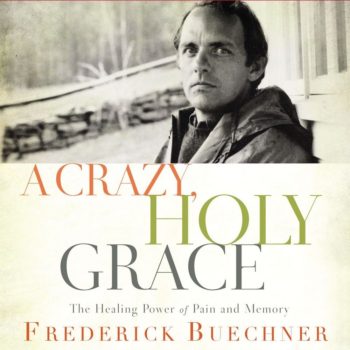In A Crazy, Holy, Grace, Frederick Buechner writes:
*****************************************************************************************************************************
Pain is treasure. Pain is horror. Pain is that which tempts you like Christ on the cross to say, “My God, my God, why did you abandon me?’
Pain is negation of everything that seems precious.
But pain also is treasure.
And it seems to me so significant that we can come together in places where there is a sense of safety.
And, as we come together and try to give each other the most precious thing we have to give because in some sense or another we love each other, what we give each other again and again is our pain.
The most precious thing I have to tell you about is the sadness. You don’t have to talk about pain, but you have to live out your pain. Speak out of your depths.”
*****************************************************************************************************************************
If talking about your pain with others is too raw and daunting, I particularly like Buechner’s suggestion that if we choose to stay quiet about our pain, we still “have to live out your pain.”
And by that, he means that when we look at the world, when we engage with others, we always do it, remembering our own pain.
At first, that sounds like self-pity, but actually, if we remember our pain, we are more likely to remember that everyone has their own pain, and as T.S. Eliot wrote of suffering in the Cocktail Party, “All cases are unique, and very similar to others.”
And so whatever pain I feel, my neighbor has.
Whoever I feel has “wronged me,’ they have been wronged too.
And when I grasp that, I will be much more tender, forgiving, and understanding. In short, more like a Christian.
Pain, without Christ’s mercy, will often turn to hatred. But through Christ’s mercy, pain will turn to tenderness. The exact opposite of hatred.
So when we look at the hatred of others through the prism of our pain, then we will be tender.
In The Power and The Glory, Graham Greene said something to the effect of, “Hatred is a failure of the imagination.”
Yes. And it doesn’t take much imagination to realize, “Oh, that hateful person is going through deep pain.” Because every human has gone through it.
And if we saw the pain in others, both from their circumstances and their own genetic makeup, then we’d fall to our knees and beg God’s forgiveness for judging them so harshly, for treating them as anyone other than someone made in God’s image, who Jesus loves.

